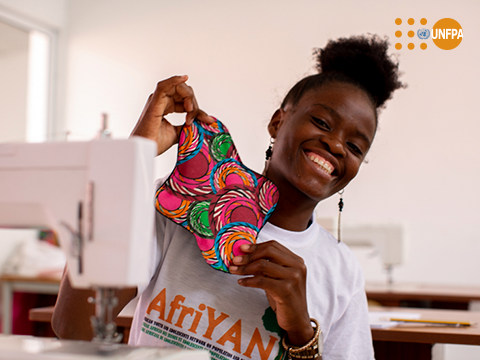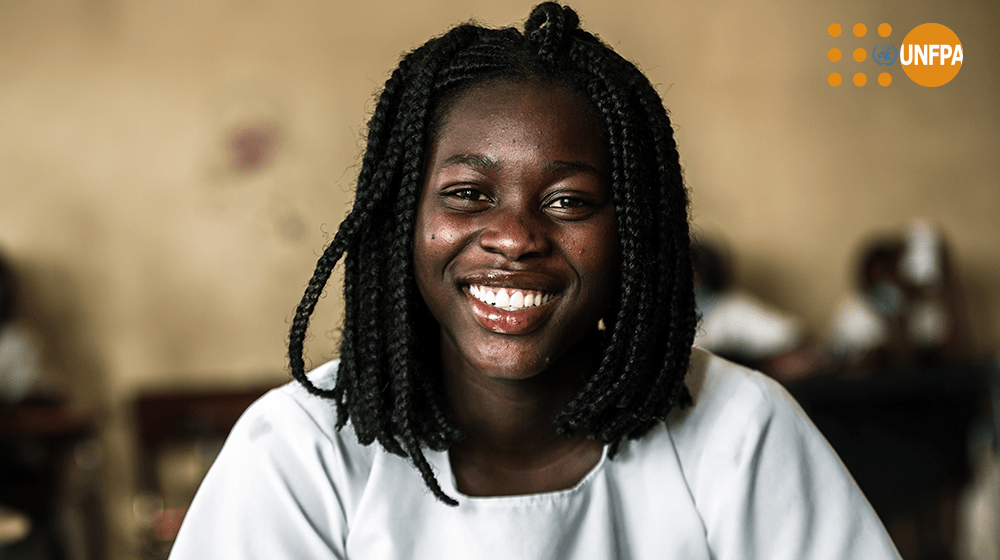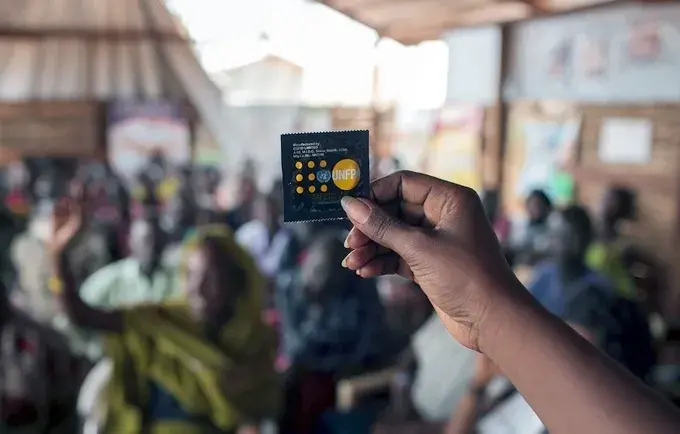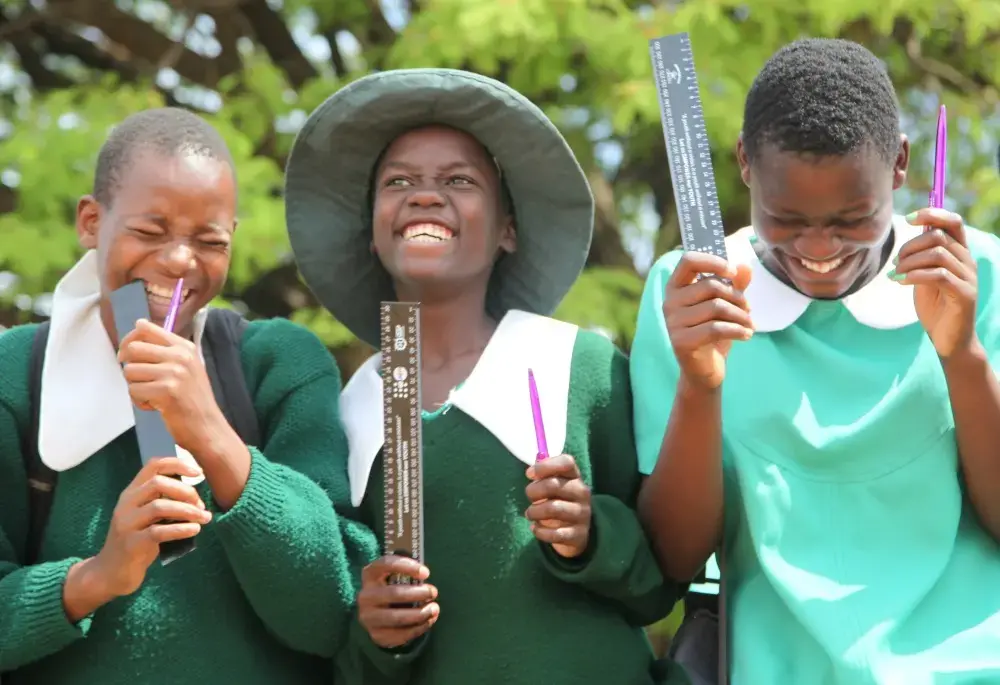Good Menstrual Health Management (MHM) enables women and girls to exercise and enjoy human rights on the basis of equality. Poor MHM, including poor sanitation, health, bodily autonomy of women and girls, stigmatization and limiting social, cultural or religious practices “can negatively impact the way they enjoy certain rights, including education, work and health”. MHM is intrinsically linked to people's ability to exercise their rights.
Angola currently has an estimated population of 35.6 million, a very young population with 45% under the age of 15 and 64% under the age of 25. Women represent 51% of the total population. Angola's adolescent fertility rate, 163 births per 1,000 girls aged 15-19, is the second highest in the region and the unmet need for family planning among these adolescents is 43%.
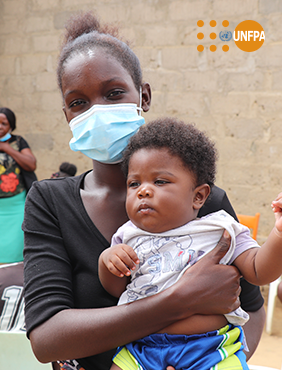
There are 8.3 million girls and women of reproductive age in Angola and in terms of schooling, while 75% of girls attend primary school, this proportion drops to a meager 15.5% in secondary education, which coincides with the age of first menstruation or menarche.
Where are we
Since 2020, UNFPA Angola has implemented the first two phases of the Ser Menina Project, in partnership with BeGirl Inc, key partners of the Government and Civil Society in 7 of the 18 provinces of the country (Luanda, Lunda Sul, Huambo, Benguela, Cuanza Sul , Huíla and Moxico) to address and identify barriers related to menstruation whose impact reinforces gender inequalities.
As a result, 3,000 girls aged 10 to 19 were equipped with two period panties each to manage their periods safely and comfortably. In addition, 3,000 girls and 3,000 boys were educated using the SmartCycle® education methodology, through Empathy Building Cycles, to improve their knowledge and attitudes about menstruation and reproduction.
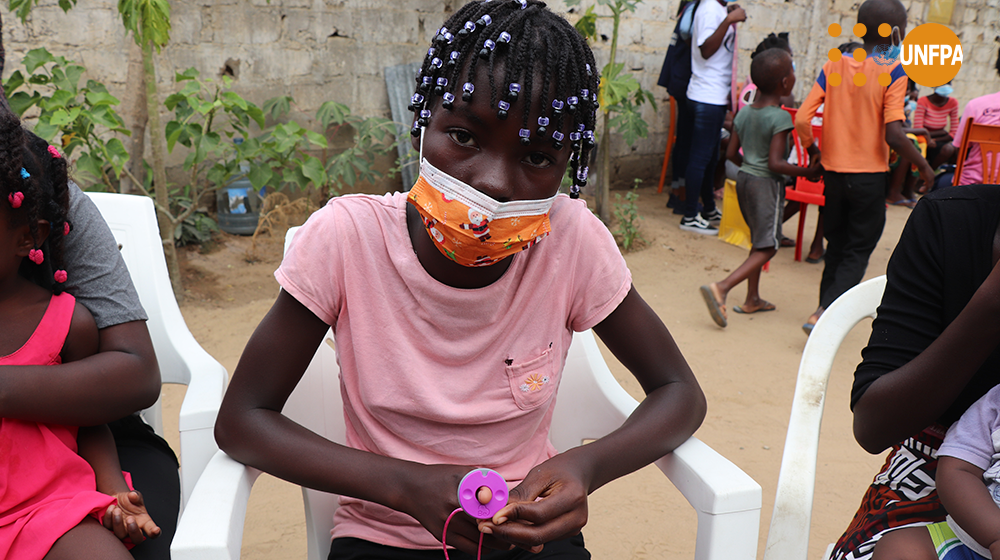
To assess the effectiveness of the intervention, a final Phase One Impact Study was launched in May 2021, with the Initiative’s Phase II Impact Study expected to be launched at the end of 2022.
At the same time and within the scope of the Regional Youth Safeguard Program SYP (acronym in English) whose duration is 5 years (2021-2026) it is intended to reach 15,000 girls and 5,000 boys aged between 10 and 24 years old through same teaching methodology, with distribution of materials for menstruation and menstrual cycle management, in the provinces of Luanda, Namibe, Cunene, Huila and Cuando Cubango, thus adding 3 provinces to the initial 7 reached in the years 2020 and 2021.
The SYP program aims to reach, in addition to the target population of adolescents and young people, adult men and women, health technicians, teachers, community and religious leaders as a way of promoting Comprehensive Sex Education in and out of school.
Recommendations
It is vital to provide menstrual education through the introduction of Comprehensive Sex Education, with age-appropriate language, to girls and boys from an early age;
Promote the involvement of parents, teachers, community leaders and adolescents themselves in menstruation educational efforts.
Provide girls with sustainable access to reliable and appropriate menstrual products in school and community programs, through the approval and implementation of a National Menstrual Health Policy and its integration into the National Sexual and Reproductive Health Strategy.
Promote exemption from customs duties and taxes on menstrual products and materials necessary for their manufacture and their inclusion in the basic food basket.
